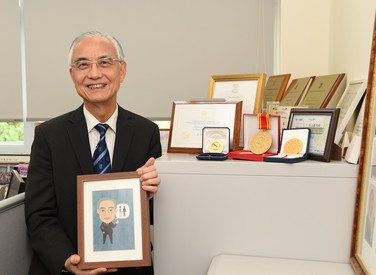Waging War Against Tobacco
It’s never-ending work but we advocate for a ‘tobacco endgame 2027’ towards a smokefree Hong Kong in about 10 years.
Most people in Hong Kong may take smoke-free restaurants, indoor workplaces and public indoor places for granted. Many might have forgotten that we used to be passive smokers in smoky homes, workplaces and restaurants, until 2007.
Individuals and societies have benefited from the research and advocacy work of Professor Tai Hing Lam, Sir Robert Kotewall Professor in Public Health,and his colleagues on the harms of smoking and second-hand smoke and the benefits of tobacco control.In 1998, he was awarded a World Health Organisation(WHO) Commemorative Certificate and Medal ‘for achievement worthy of international recognition’.
Over the past three decades, their research and advocacy with others (Professor Judith Mackayand Hong Kong Council on Smoking and Health[COSH]) have contributed a lotto higher tobacco taxes andbanning of smoking in all indoor workplaces, restaurants and barsin Hong Kong, and a fall in local smoking rates to the lowest in the developed world (about 10 per cent of adults and about 2 per cent of secondary school students). The accompanying decline in age standardised rates of new cases and deaths from cardiovascular diseases and cancers has resulted in Hong Kong’s longest life expectancy in males and females.
The findings of his team (including Professor Sarah McGhee, Dr Daniel SY Hoand the late Professor AJ Hedley) that smoking and second-hand smoke killed about 6,920 people andcost HK$5.3 billion to lost productivity and healthcare expenditurein Hong Kong in 1998 have been frequently cited. Following COSH’s 2006 publicity campaign using their result that second-hand smoke kills 1,324 Hong Kong people a year, the Legislative Council passed the law expanding smokefree areas greatly from January 2007. The studies of Professor Lam and COSH have shown strong support from Hong Kong people for raising tobacco tax substantially, and that the tobacco industry has consistently exaggerated the problem of illicit cigarettes.
Their research on passive smoking has also been globally influential, demonstrating that people who never smoke have higher risks of lung cancer, heart disease, stroke and other diseases from other people’s smoke. The evidence supports causation, not just association.
Increasing efforts have also been directed towards helping smokers to quit. About 15 years ago, Professor Lam and his former colleague Professor Sophia Siu Chee Chan, currently HKSAR Secretary for Food and Health, were the first todevelop and test smoking cessation interventionsin this region. They have shown through randomised controlled trials that even the simplest actions, such as briefly advising patients to quit, can work.They have trained more than a thousand smoking cessation counsellors and ambassadors, and set up pilot or demonstration smoking cessation clinics in Hong Kong and Mainland China to show the cost-effective ways to help people quit. Their pioneering Youth Quitline has helped many young smokers quit smoking. The trial evidence and successes have resulted in government allocating more resources to smoking cessation services.Professor Lam and colleagues in School of Nursing (Dr William HC Li, Dr Kelvin MP Wang and others) have started publishing results from innovative research at smoking hotspots (outdoor areas where smokers gather to smoke).
“WHO warns that one out of every two smokers who continue to smoke will be killed prematurely by tobacco. Recent evidence, including that from our research, shows that the risk could be up to two out of three. Hong Kong has 600,000+ smokers so at least 300,000 people will be killed by tobacco if they don’t quit,” Professor Lam said. “We will continue our research to support stronger tobacco control measures and evaluate the impact. It’s never-ending work but we advocate for a ‘tobacco endgame 2027’ towards a smokefree Hong Kong.”


